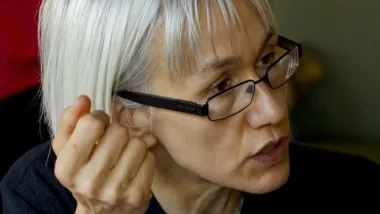My December blog dealt with key problems faced by those heading for an end-of-school-year graduation—completing a proposal, choosing methods, starting to write, and dealing with formatting. This month I step back and ask some bigger questions: what kind of exit paper or project you should prepare, why, and when?
My December blog dealt with key problems faced by those heading for an end-of-school-year graduation-completing a proposal, choosing methods, starting to write, and dealing with formatting. This month I step back and ask some bigger questions: what kind of exit paper or project you should prepare, why, and when?
What: The "what" question is an important one. Many programs offer at least two of the following options:
- A final thesis, written as an individual, and conforming to university guidelines.
- An individual project that is typically shorter than a thesis, involves a client, and has more flexible formatting.
- An individual research paper that is similar to an independent study.
- A group project often created in one semester within a class.
- A capstone studio or workshop course that may involve both individual and group work.
- An additional concentration.
- An exit exam.
I typically advocate an alternative to the thesis. The thesis carries a mystique that no other exit option has. Too many students see it as needing to simultaneously express their innermost being and guide them clearly to their first job or a doctoral research program. That's a heavy emotional burden and it is unsurprising that many students doing theses fail to graduate on time with significant costs in terms of lost opportunities. Theses typically use up close to a semester's worth of credits, a large opportunity cost when there are many good classes to choose from. Even if you are considering a PhD, a thesis is not necessarily any better preparation for independent research than a project or paper with an additional class or two in research methods or advanced aspects of the field.
Why: The "why" question relates to the purpose of an exit option. There are several good reasons for choosing a particular format or topic and students should be clear about which approach they are taking. An exit thesis, project, workshop, or other option may achieve one of more of the following ends:
- Perform socially useful work that might not otherwise be done.
- Consolidate existing skills-as a real capstone experience.
- Develop knowledge about a method or develop a new skill - those doing exit exams are often freeing time to do new courses; those doing additional concentrations are achieving something similar.
- Make connections with potential employers.
- Satisfy an interest in a topic that won't be central to your future work. This may be the one time you can research the history of somewhere you are drawn to.
- Work with an interesting group of students or an important client group.
- Express one's ideas and core values fully and in a way that is emotionally satisfying and makes an enormous impact in the world.
There's obviously not one right answer to the question regarding why students focus on a particular area. It is important, however, to see that the last reason-expressing one's core ideas and values-places a big burden on the student. The other purposes might actually achieve these ends but with less angst and more likelihood of completion.
When: For course-based options the issue of timing is fairly easy-as long as students work solidly and consistently they will finish at the end of semester. For individual projects, theses, and papers there are some choices. The following options assume a two-year degree with semesters but can be adjusted for other formats:
- Write a proposal in semester two, collect data in the summer, and write it up in the third and/or fourth semester. If you need to travel to collect data this can be a good format but requires early preparation.
- Write a proposal in semester three, collect data that semester and over the vacation, then write in semester four.
- Do the whole thing in one semester-quite possible with a research project. And it doesn't need to be the last semester either!
Obviously there are many options. All allow a student to finish on time and move on to doing good work in the world.
Next month-the proposal.

Planetizen Federal Action Tracker
A weekly monitor of how Trump’s orders and actions are impacting planners and planning in America.

Chicago’s Ghost Rails
Just beneath the surface of the modern city lie the remnants of its expansive early 20th-century streetcar system.

Amtrak Cutting Jobs, Funding to High-Speed Rail
The agency plans to cut 10 percent of its workforce and has confirmed it will not fund new high-speed rail projects.

Ohio Forces Data Centers to Prepay for Power
Utilities are calling on states to hold data center operators responsible for new energy demands to prevent leaving consumers on the hook for their bills.

MARTA CEO Steps Down Amid Citizenship Concerns
MARTA’s board announced Thursday that its chief, who is from Canada, is resigning due to questions about his immigration status.

Silicon Valley ‘Bike Superhighway’ Awarded $14M State Grant
A Caltrans grant brings the 10-mile Central Bikeway project connecting Santa Clara and East San Jose closer to fruition.
Urban Design for Planners 1: Software Tools
This six-course series explores essential urban design concepts using open source software and equips planners with the tools they need to participate fully in the urban design process.
Planning for Universal Design
Learn the tools for implementing Universal Design in planning regulations.
Caltrans
City of Fort Worth
Mpact (founded as Rail~Volution)
City of Camden Redevelopment Agency
City of Astoria
City of Portland
City of Laramie



























